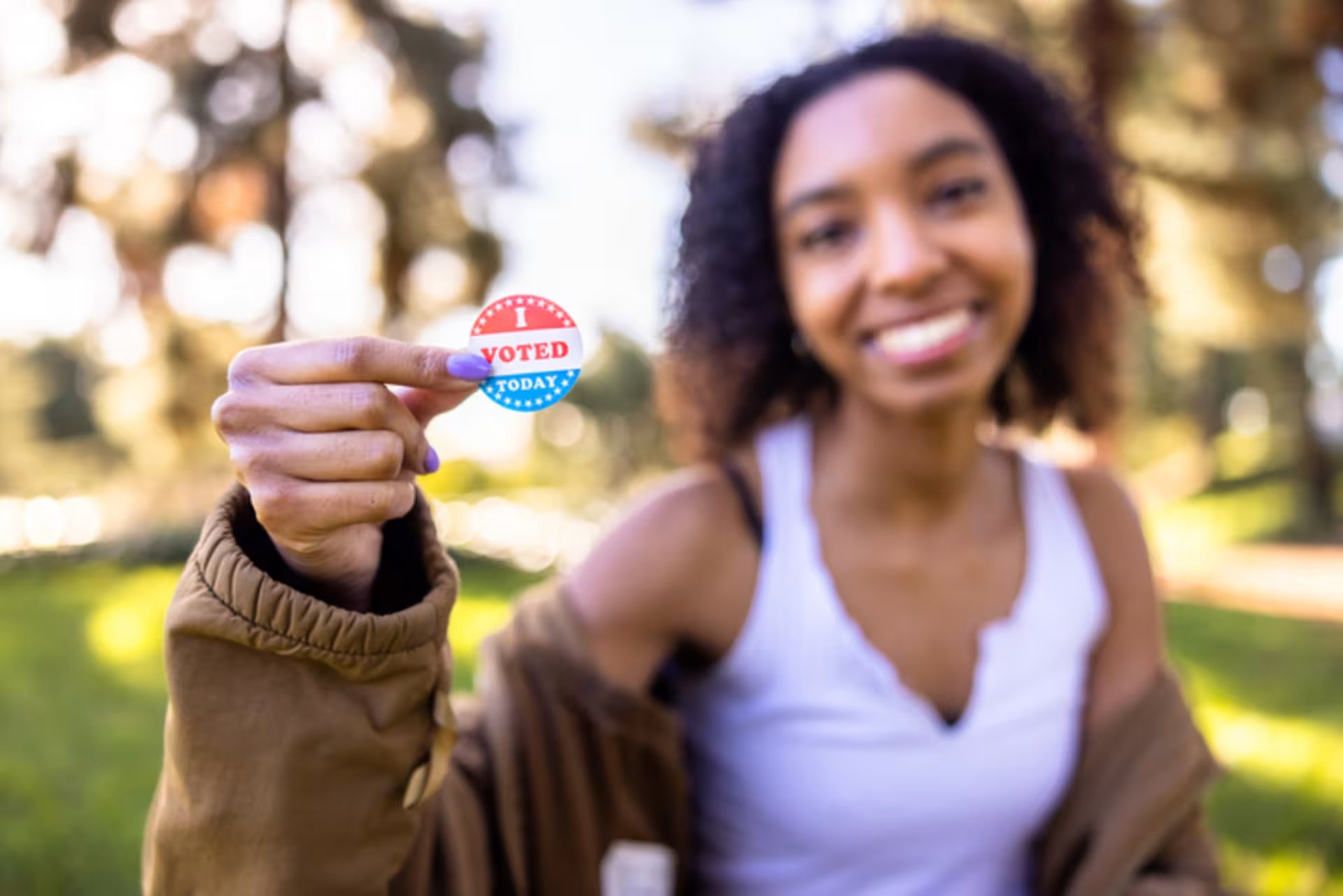Read time 6 minutes
Published on Apr 14, 2023
Voting as a college student is not only essential but also empowering. By participating in the democratic process, you can make your voice heard and shape the future of your country. However, college students are busy! Fortunately, voting as a college student is not as time-consuming as you might think. With early voting and absentee ballots, you can even cast your vote from the comfort of your dorm room. And if you decide to vote in person, the experience can be exciting and inspiring as you join your fellow citizens in exercising your right to vote.
So why should college students vote? For one, your vote can make a real difference. Whether you care about issues like climate change, education or social justice, your vote can help elect leaders who share your values and will fight for the issues you care about. Additionally, voting is a way to honor the sacrifices of those who fought for our right to vote and pave the way for future generations.
In This Article:
Why College Students Should Vote
College students have been voting in increasing numbers in recent years. In 2016, 3% more college students voted compared to the previous presidential election, for a total turnout of 48.3%.(See disclaimer 1) In the 2020 presidential election, 66% of college students who were registered to vote turned up at the polls or submitted an absentee ballot. College-student voter turnout even increased during the 2018 midterm elections, reaching 40% (compared to 19% in 2014).(See disclaimer 2)
Clearly, college students are becoming increasingly civically engaged. However, there is still opportunity for students to be more involved in elections. Continuing this upward trend requires your commitment to cast your own ballot and voice your opinion in elections. So, why is voting while in college important? Here’s a look at a few of the reasons why you should make a plan to vote for the next election — and every election after that.
Voting While in College: What To Know About Your Rights
The first thing to know about voting while in college is that voting is a near-universal right for U.S. citizens. You are able to cast your ballot if you:
You need to register to vote only once in your lifetime. However, it’s a good idea to double-check that your registration is still valid ahead of any Election Day. The National Association of Secretaries of State (NASS) maintains a “Can I Vote” webpage that allows citizens to check their registration status, and to learn how and where they can vote.(See disclaimer 3)
Each state establishes their own residency requirements (unhoused people can still vote if they are otherwise eligible) and voter registration deadlines. Become familiar with your state’s regulations ahead of time.
Now that you know who is lawfully able to vote in the U.S., let’s take a quick look at who is disenfranchised. You are not eligible to vote if you:
Voter eligibility isn’t the only thing you should know about your right to vote. College students and all other eligible voters enjoy the following voting rights:
How To Vote as a College Student in the United States
Now that you’re familiar with your basic voting rights, it’s time to take a closer look at exactly how and where you can vote as a college student. This is a simple process if you’re attending college in your home state — you’ll cast your ballot in that state.
However, if you’re an out-of-state college student, you may be able to choose whether you vote in your home state or in the state where you currently live. You may cast only one ballot. Each state establishes its own residency requirements.
In Arizona, for example, out-of-state students who travel to Arizona for the purpose of attending school are not automatically considered eligible to vote in Arizona — and students from Arizona who attend college in other states do not automatically lose their Arizona residency.(See disclaimer 4) In other words, if you’re an out-of-state student attending a college in Arizona, you must vote in your home state, instead of in Arizona.
If you’re attending college out of state and you’re required (or are otherwise planning) to vote in your home state, you do not need to physically travel to your home state to cast your ballot. Instead, you can use an absentee ballot. Every state allows absentee voting.
Absentee voting is safe and secure, and does not lead to widespread election fraud.(See disclaimer 5) Being a college student temporarily living out of state is widely considered a valid reason for requesting an absentee ballot. (Not every state requires a reason for requesting an absentee ballot.)
It’s quick and easy to request an absentee ballot. Visit the “Can I Vote” page on the NASS website, navigate to “Absentee & Early Voting” and select your home state on the menu. You’ll be taken to a website with additional voting information and instructions on how to request your ballot. Pay attention to the applicable deadlines and review the ballot thoroughly before filling it out to avoid making errors.
In short, voting as a college student is important and rewarding. By participating in the democratic process, you are contributing to a better future for yourself and your community. So make sure to register to vote, and encourage your peers to do the same. Every vote really does matter and together, our votes can make a difference.
At Grand Canyon University, we’re proud to be known for modern degree programs and rigorous academics. But we also offer a wealth of student enrichment opportunities, support services and resources. We encourage current and potential students to explore the services available from our friendly Student Affairs team, from on-campus clubs and sports to spiritual enrichment to counseling services, and much more.





